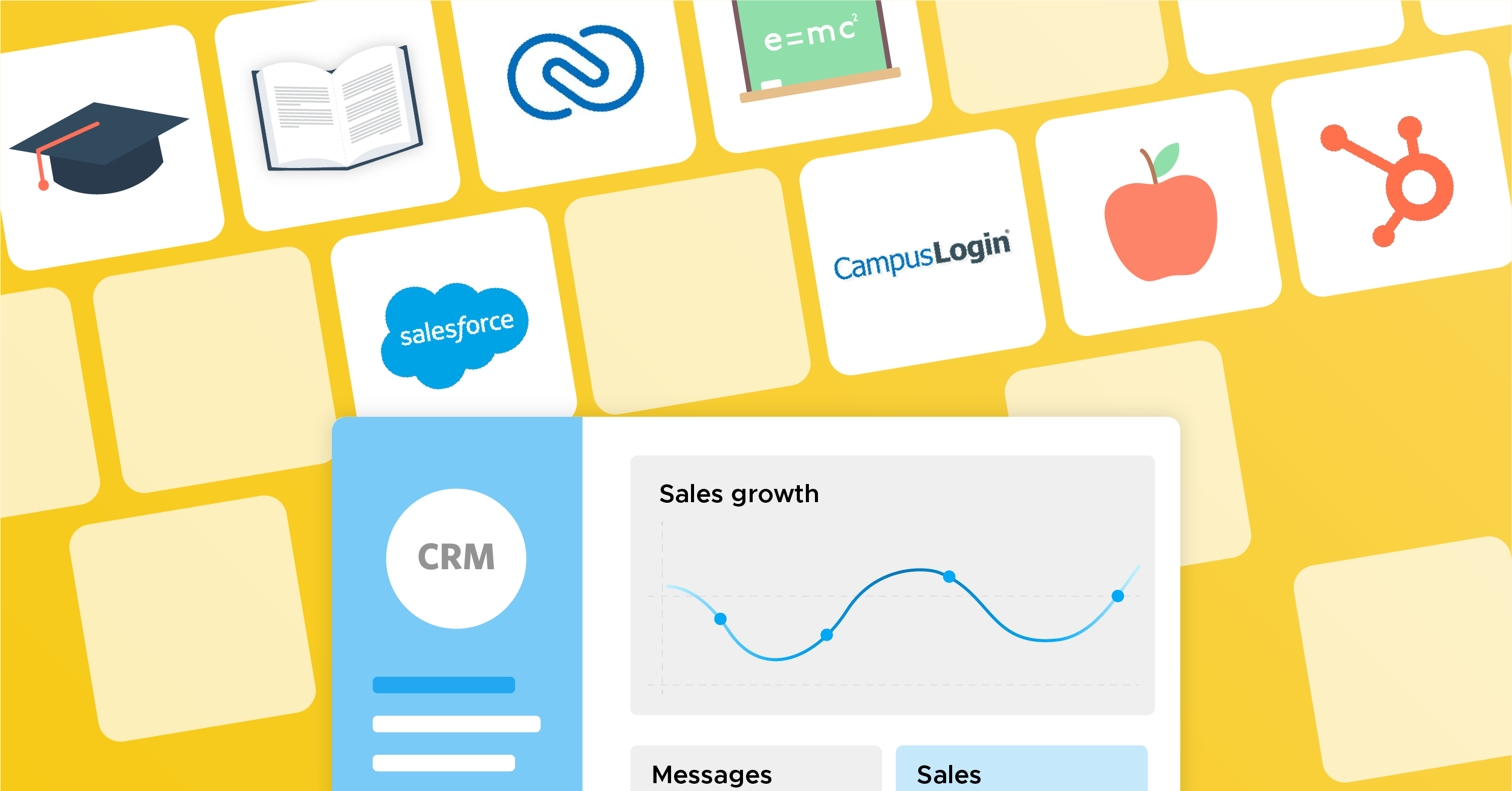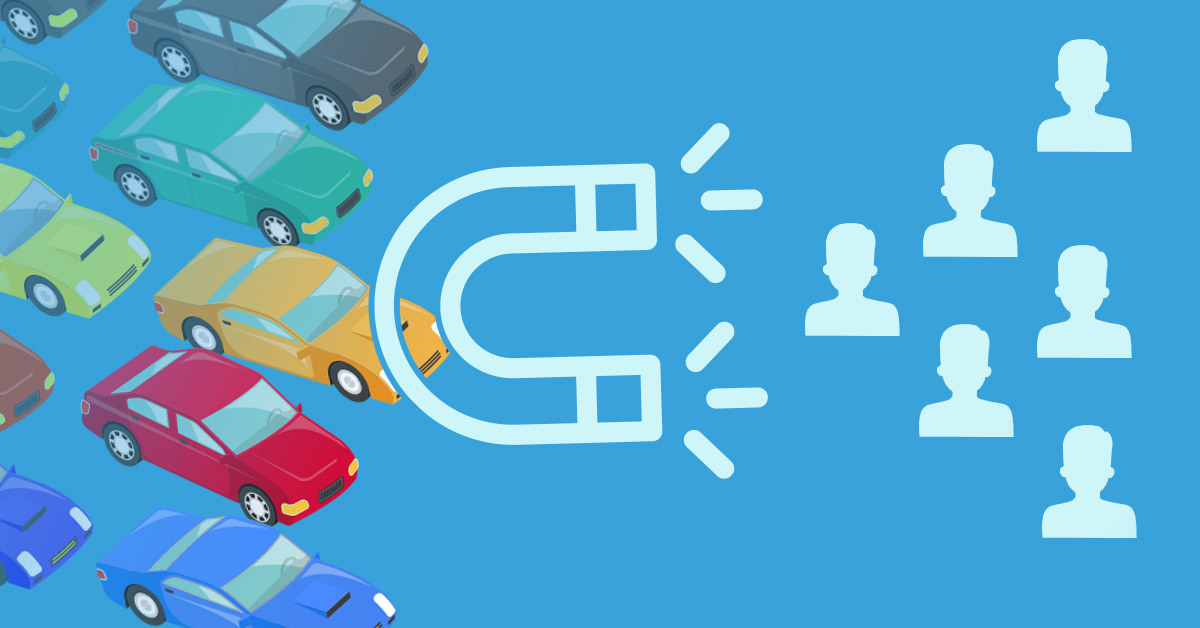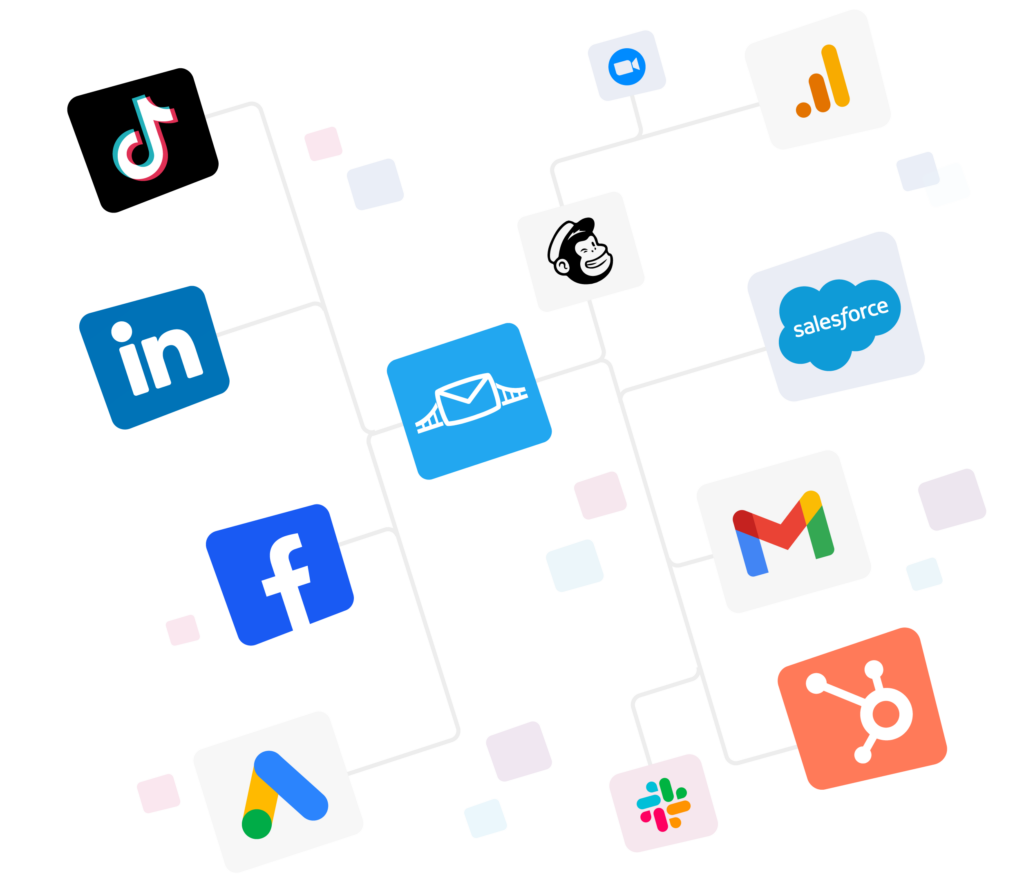
An automotive CRM is different from just any customer management software. It’s a must-have tool for any business in the automotive industry that wants to effectively convert their leads into actual sales.
In the past, “traditional” lead management typically meant manual processes. Working with paper records, filling in spreadsheets, and running follow-ups driven by instinct instead of data-driven insights.
These outdated methods can easily set a business up for failure. Mostly, due to inefficient lead data handling, slow response times, and poor tracking of customer interactions.
Another factor is automation. For example, just being able to integrate your CRM with Facebook gives your advertising a huge competitive advantage. This connection translates into precise targeting and real-time lead capture directly from ads, as well as running timely follow-ups.
- What is automotive CRM software?
- Why use automotive CRM software?
- Main features to look for in an automotive CRM
- The role of automotive CRM in Facebook advertising
- Best automotive CRM in 2025
- Advantages of using automotive CRM integrations
- Automotive CRM trends to watch for in 2025
- What to take away from this?
In this article, we’ll discuss what makes for a great CRM and how automated CRM integrations can help you access the full potential of your advertising on platforms like Facebook in 2025.
What is automotive CRM software?
An automotive CRM (customer relationship management) is a specialized software solution designed to assist car companies in managing customer service, sales, and marketing efforts.
It has the exact tools a dealership needs to gather leads, manage a multi-channel automotive sales strategy, and build stronger customer relationships.
Automotive CRM vs. standard CRM systems
The difference between automotive CRM software and a generic CRM is in their design. The dedicated tools focus on automotive CRM features essential for industry businesses. A dedicated CRM like Salesforce can also prove beneficial for your company.
These include vehicle inventory management, service appointment scheduling, and integration with automotive-specific sales channels. This level of specialization allows dealers to manage the entire customer lifecycle from the very first contact through post-sale services.
How to build an automotive CRM strategy
Everything in the auto industry has changed a lot in recent years. How cars are stocked, sold, financed, and serviced is all different now.
Most importantly, the way customers buy cars has changed. So, you need new tools to keep up and strategies that consider both tools and customers’ likes, dislikes, and needs.
Here’s everything you need in your automotive CRM strategy by asking the “right questions”.
What does your business need?
First, find out what automotive CRM features you need. Then, look for a CRM that covers all those features. This might include:
- Lead management
- Customer service
- Marketing automation
- Inventory tracking, etc.
Do you have a high-performing centralized customer data hub?
Gathering all customer information into one place is a robust data management practice. A centralized data hub gives full visibility over your campaigns, business transactions, and your audience’s interests, as well as the lifecycle of your leads and customers.
To do this, however, you’ll need to create an interconnected data technology stack. This includes bringing data from contact forms, purchase history, service records, ads, website, store visits, and more. Maintaining a centralized database also allows for better customer insights and personalized interactions.
You can do this using native and third-party integrations such as:
How much of your dealership’s workflows are automated?
Use the CRM that offers automation features that can streamline your routine tasks like follow-ups, scheduling service reminders, and sending marketing emails.
Automation helps make sure no opportunities are missed and that your team has enough time to work on strategy rather than manual data management.
Also, your dealership CRM should allow third-party integrations to connect all your preferred tools and marketing apps.
Is your automotive business data-driven?
You’ll need a tool that makes it easy for you to review the data collected in your CRM regularly. This lets you look for trends and patterns to understand customer behavior and preferences.
In addition, a seamless analytics feature constantly supplies you with information that helps adjust your sales and marketing strategies.
Does your team know how to use your new automotive CRM?
Almost every tool has a learning curve. Of course, some are more steep than others. In any case, make sure all staff members know how to use the CRM. It’s the business owner’s responsibility to provide training sessions and create user guides to help them understand the system’s features and benefits.
How much of your customer interactions are personalized?
Reportedly, 89% of marketers get good results when they personalize their campaigns. Using the data in your CRM, you can tailor your communications and offers so that they are actually relevant to individual customers.
Besides increasing the likelihood of getting more clicks, personalized interactions build stronger relationships and often increase customer loyalty.
Is reiteration a part of your team’s workflow?
User behavior is dynamic in nature, meaning it can shift over time. Marketing trends also change with the release of new products or services, sometimes solely to accommodate new user preferences.
Even if you have made an outstanding automotive CRM strategy, you’ll need to continuously monitor your performance. Also, gather feedback from your team and customers, and make necessary adjustments to improve the system and processes.
Why use automotive CRM software?
About a quarter (23.5%) of potential car buyers aren’t followed up within 24 hours. Out of these, 13.3% are never entered into the customer management system. This means dealers could lose 37% of their online leads because of these follow-up and record-keeping problems.
Using one of the best CRMs for the automotive industry has a number of benefits that you cannot get in generic CRM systems. For starters, it ensures that dealerships can operate better.
Also, it gives them access to tools that streamline processes like scheduling test drives, managing trade-ins, and following up on leads.
The main reason for having a high-performing CRM is the sheer amount of data that dealerships deal with daily. If you manage your dealership’s data well, however, you can expect outstanding results. Take a look at these statistics, for instance.
Let’s take a quick look at how a specialized CRM can have a profound impact on the core aspects of dealership operations:
Automotive CRM for sales
This CRM centralizes customer data and interactions so sales teams can better track leads, understand customer preferences, and close deals faster.
Other useful tool sets include automated features like follow-up reminders and personalized communication templates. These help maintain customer engagement and minimize opportunities for sales to fall through.
Automotive CRM for customer service
From organizing service schedules to tracking vehicle maintenance histories and alerting customers to upcoming service needs, almost all your operations can be streamlined. This level of streamlined efficiency is only possible with robust digital automotive solutions.
This is a proactive management strategy that improves customer satisfaction and could well lead to higher customer loyalty and retention rates.
Automotive CRM for marketing
The marketing department can segment customer databases, which lets them target marketing campaigns based on specific criteria. These targeted campaigns are conversion-oriented and can significantly increase the ROI of marketing efforts.
Main features to look for in an automotive CRM
When running an automotive business, you need a smooth process that quickly converts online leads into actual sales. A high-performing CRM can help you achieve this level of operation.
Here are the aspects your CRM of choice needs to cover:
- Lead management with efficient tools to capture and track car sales leads from various sources. This lets you quickly respond to potential customers and convert their interest into sales.
- Customer segmentation based on their preferences, purchase history, and behavior so that you can engage them better.
- Integrating inventory management for real-time tracking of vehicle stock levels, features, and pricing, and finally, seamless sales processes.
- Automating marketing tasks like email campaigns, social media postings, targeted ads, and anything else to reach your potential buyers.
- Automating the sales process, from initial contact to closing the deal. It should include features like deal structuring, quotations, and financing options, including visibility into inventory financing, which helps dealerships better manage cash flow while keeping vehicles available on the lot.
- Service schedules and reminders that help improve the workflows in your customer service department. This one is a big deal when it comes to boosting your customer satisfaction and retention.
- Mobile accessibility for salespeople on the move via a mobile app or a mobile-friendly design.
- Analytics and reporting tools that allow tracking sales trends, customer behavior, and campaign effectiveness.
- Customer support tools with features like live chat, customer support ticketing, and feedback collection to build long-term relationships with customers.
- Data security and compliance to protect sensitive customer and business information.
- Customization and scalability to meet your current needs while growing your business.
- The ability to integrate with other tools and platforms, such as Facebook, email systems, and other business software, to create a seamless workflow.
The role of automotive CRM in Facebook advertising
Facebook has become a practical platform for automotive dealerships to increase sales and generate more qualified leads. 95% of car buyers search the internet before buying a car. A dedicated CRM can help you make the most of your Facebook ads.
However, you’ll want to make sure you’re aligned with Facebook’s regulations and the FTC car dealerships’ new lead generation rules.
When you store your data the right way, you can continue to post your inventory and actually make an impact on this platform.
Your CRM can also help you streamline your campaigns and audience targeting. Integrating CRM data with Facebook lets you easily access and organize your lead data.
This integration automatically updates customer interactions and preferences. Moreover, if your CRM offers advanced analytics, it can provide valuable insights into ad performance. Accessing this data round-the-clock is a must if you want to keep your campaigns optimized.
All these factors combined can result in a more controlled Facebook ad spend, higher conversion rates, and, potentially, higher ROIs for your dealership.
However, you can only fully access these benefits by creating an interconnected marketing technology stack. And how do you do that? By connecting Facebook and your CRM through automated data bridges.
Wondering how to improve your Facebook marketing?
- Here’s how to advertise your car dealership on Facebook.
- Also, check out these car dealership event ideas you can use all year long.
Best automotive CRM in 2025
When choosing the best CRM for the automotive industry in 2025, there are several high-quality options on the market. Here’s a closer look at some of the best CRMs you can use:
1. elead CRM
elead CRM helps streamline dealership operations. But that’s not all! It also boosts customer relationships and makes managing your lead data a seamless process. The platform is known for its user-friendly interface and extensive reporting features.
LeadsBridge helps you connect elead CRM to the top marketing apps and advertising platforms like Facebook. These integrations allow you to sync lead data between the two platforms and design targeted advertising campaigns directly from the CRM.
2. DealerSocket CRM
The CRM by DealerSocket is a versatile tool that’s tailored to the automotive industry. It supports dealerships in managing customer relationships and sales processes.
The platform also features advanced inventory management tools for your Facebook advertising. Besides, it offers tools for marketing automation and sales analytics you can use to drive sales growth.
This CRM by DealerSocket can be integrated via LeadsBridge, which can markedly increase its capabilities.
By connecting this CRM with Facebook, you’ll have access to a more sophisticated automotive lead capture system as well as real-time updates. It’s the ultimate solution to having a smooth flow of information and crafting personalized marketing strategies on Facebook, among other things.
3. VinSolutions CRM
What makes VinSolutions CRM unique is how it provides a 360-degree view of dealership interactions. It offers a number of customized solutions to accommodate every individual dealer’s needs. Learn how to get the most out of VinSolutions CRM.
The CRM’s integration through LeadsBridge allows you to directly link this CRM to Facebook and automate your Facebook lead generation and lead data sync. This integration provides a great basis for robust lead management while improving the effectiveness of your digital marketing campaigns.
Discover how to create a VinSolutions-Facebook integration via LeadsBridge.
4. Zoho automotive CRM
Zoho CRM is a cloud-based solution that caters well to automotive dealerships looking to streamline customer management and sales processes.
It includes powerful tools for lead tracking, sales pipeline management, and customer communication. Essentially, everything you need to build long-term relationships.
The platform also supports automation for follow-ups and targeted email campaigns, helping your team to stay connected with prospects easily.
Zoho automotive CRM can be integrated via LeadsBridge and sync with Meta platforms (Facebook and Instagram) and other digital platforms.
This integration makes it easier to capture leads in real time, track them through every stage, and deliver personalized messaging.
Advantages of using automotive CRM integrations
Car dealerships can no longer rely solely on physical store customers, which is why CRM platforms have become essential. But logging into a CRM and starting to use it is not enough; you need the right setup for your dealership if you don’t want to stay behind the competition. We are talking about automation and automotive CRM integrations.
Using automated data bridges allows your CRM to connect with other tools and platforms, like inventory management, email marketing, and social media. Among others, it helps:
- Streamline your operations by automatically updating data across systems
- Save time and reduce data entry errors.
- Improve customer service by providing a complete view of each customer’s interactions.
- Improving CRM retargeting and audience targeting precision in ad campaigns via the right integrations, such as:
- Focusing your marketing budget on leads that matter across Meta technologies, using Conversion leads performance goal:
- Better lead tracking using Conversions API integrations:
- Make it much easier to offer personalized service and follow-ups.
You can do this using native and third-party integrations such as:
- Run user journey-based advertising.
- Make your dealership more efficient.
- Potentially boost sales and customer satisfaction.
Automotive CRM trends to watch for in 2025
For automotive CRM, 2025 will continue to be a big year. The market is expected to grow from $6.13 billion in 2024 to $6.79 billion in 2025, which is a solid 10.8% increase.
So, what’s driving this growth? Let’s take a look at some of the key trends shaping how dealerships connect with customers.
1. Smarter tools with AI and machine learning
CRM systems are getting a major upgrade thanks to AI and machine learning. These technologies help dealerships do more than just store customer info.
The top CRMs in the market can now predict buying behavior, personalize marketing, and automate repetitive tasks. This means better quality leads, more targeted communication, and less guesswork.
Learn more about how to use AI for lead generation here.
2. Moving to the cloud
More and more dealerships are shifting to cloud-based CRM platforms. They’re easier to scale, more cost-effective, and accessible from anywhere.
Cloud solutions also make it simple to keep everything up to date and connected with other systems like inventory or scheduling.
3. Mobile access is a must
Dealership teams are always on the move, and mobile CRM apps help them stay productive from anywhere. Whether they’re checking in on a lead, setting an appointment, or responding to a customer, mobile tools make it easy to stay connected in real time.
4. Data privacy is extending its reach
As CRMs handle more customer data, keeping that information secure is more important than ever. In 2025, dealerships are doubling down on data protection.
This ensures they comply with privacy laws and use systems with strong encryption and security features.
5. Everything working together
Today’s CRM platforms are designed to sync well with others. Integration is key, whether it’s syncing with inventory systems, finance tools, or service scheduling.
This all-in-one approach helps teams work more efficiently and gives managers a clearer view of the whole business.
What to take away from this?
An automotive business traditionally relies on data, whether it’s for analyzing consumer behavior, identifying target markets, or studying competitors. Facebook’s automotive features can help you support this data-heavy process.
This platform uses information to show the right vehicle from your inventory to the right audience. Then, it offers you the right tools to tackle each aspect of the process.
The inventory ads, for instance, are specifically made for the car industry and include a unique design style, data analysis, and improved ad delivery_ all the important elements for car companies.
However, you can only access these valuable features if you help the platform understand what you need. By ‘help,’ we mean creating a seamless connection with Facebook that transfers data to and from your CRM.
Besides improving your advertising experience, automated integrations can also upgrade your internal operations.





















